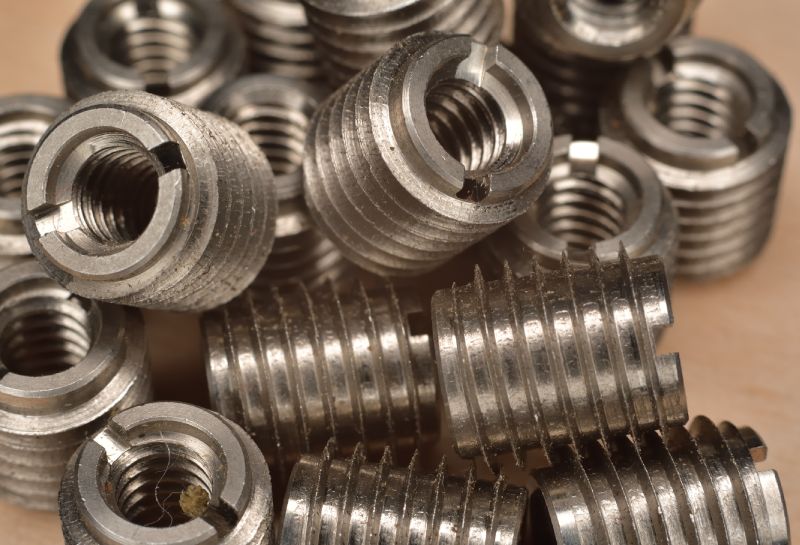
When choosing the appropriate fasteners for your project, it’s essential to understand the distinctions between coarse- and fine-threaded fasteners. Every threading has particular benefits and drawbacks that might significantly affect how your project turns out. We’ll examine the differences between these two thread styles in this post and assist you in choosing the one that best meets your requirements.
Coarse Threads vs. Fine Threads: What Sets Them Apart?
Coarse Threads: In the construction, industrial, military, and aviation sectors, in particular, coarse threaded fasteners are a widely used option for various applications. What you need to know about coarse threads is as follows:
Advantages of Coarse Threads: Coarse threads have more profound and broader ridges, making them less prone to cross-thread problems. They are less prone to stripping and cross-threading because of their design.
Tolerance for Damage and Nicks: Coarse thread fasteners are resilient enough to endure little scratches and work well.
Decreased Galling: Coarse threads are more appropriate for various applications because they gall less frequently than fine threads.
Less Sensitive to Cleanliness: Coarse threaded fasteners are appropriate when cleanliness may be an issue since they can function well even in less-than-ideal settings.
Fast Installation: Because coarse threads are less likely to seize when tightening, installation can be completed more quickly and effectively.
Drawbacks of Dense Threads
Less Accurate Adjustments: In some cases, coarse threads might need to offer the required level of accuracy.
Restricted Usage in Particular Assembly Applications: They could be better for uses requiring extremely accurate modifications.
Fine Threads: Fine-threaded fasteners are better in some situations because they have unique benefits.
Advantages of Fine Threads
The benefits of fine threads include the following:
Enhanced Strength: Because of their smaller diameter and broader stress area, fine threads are stronger in shear and tension.
Precise Adjustments: In applications where precision is necessary, they enable finer adjustments.
Reduced Torque Needed: To attain the same degree of bolt proof load, fine thread fasteners require less torque.
Suitable for Sensitive Assemblies: They are ideal for sensitive or particular assembly applications because of their precision and loosening resistance.
Ease of Tapping: Fine threads are simpler to tap into thin-walled tubes and hard materials.
Drawbacks of Fine Threads
Here are some of the drawbacks of fine threads:
Galling Susceptibility: Fine threads are more prone to irritating than coarse threads.
Lengthier Thread Engagement: They are more vulnerable to damage and thread fouling, and call for longer thread engagements.
Less Appropriate for High-Speed Assembly: Fine threads may seize more readily during high-speed assembly procedures.
Which Thread Style Is Best for You?
Choosing the appropriate thread style for your project depends on its particular requirements. Here are some pointers to assist you in making a wise choice:
Because of their strength, adaptability, and simplicity of use, coarse threads are typically the preferred option for most applications. They perform best when durability and strength are crucial and little flaws are tolerated.
Fine threads are the way to go when accuracy is crucial and you require highly accurate adjustments, are working with materials such as titanium, aluminum, stainless steel, or other alloys, or have particular assembly requirements.
The particular requirements of your project should determine if coarse- or fine-threaded fasteners are best. To make an informed choice, consider the materials you’re working with, the degree of precision needed, and the surrounding circumstances. Remember that choosing the appropriate thread style is essential to guaranteeing the prosperity and durability of your endeavor. Please get in touch with our specialists at Marsh Fasteners if you require any additional advice in selecting the best fasteners for your application. Thanks to our years of experience, we can assist you in finding the ideal fasteners to suit your demands. Our goal is the success of your project.



